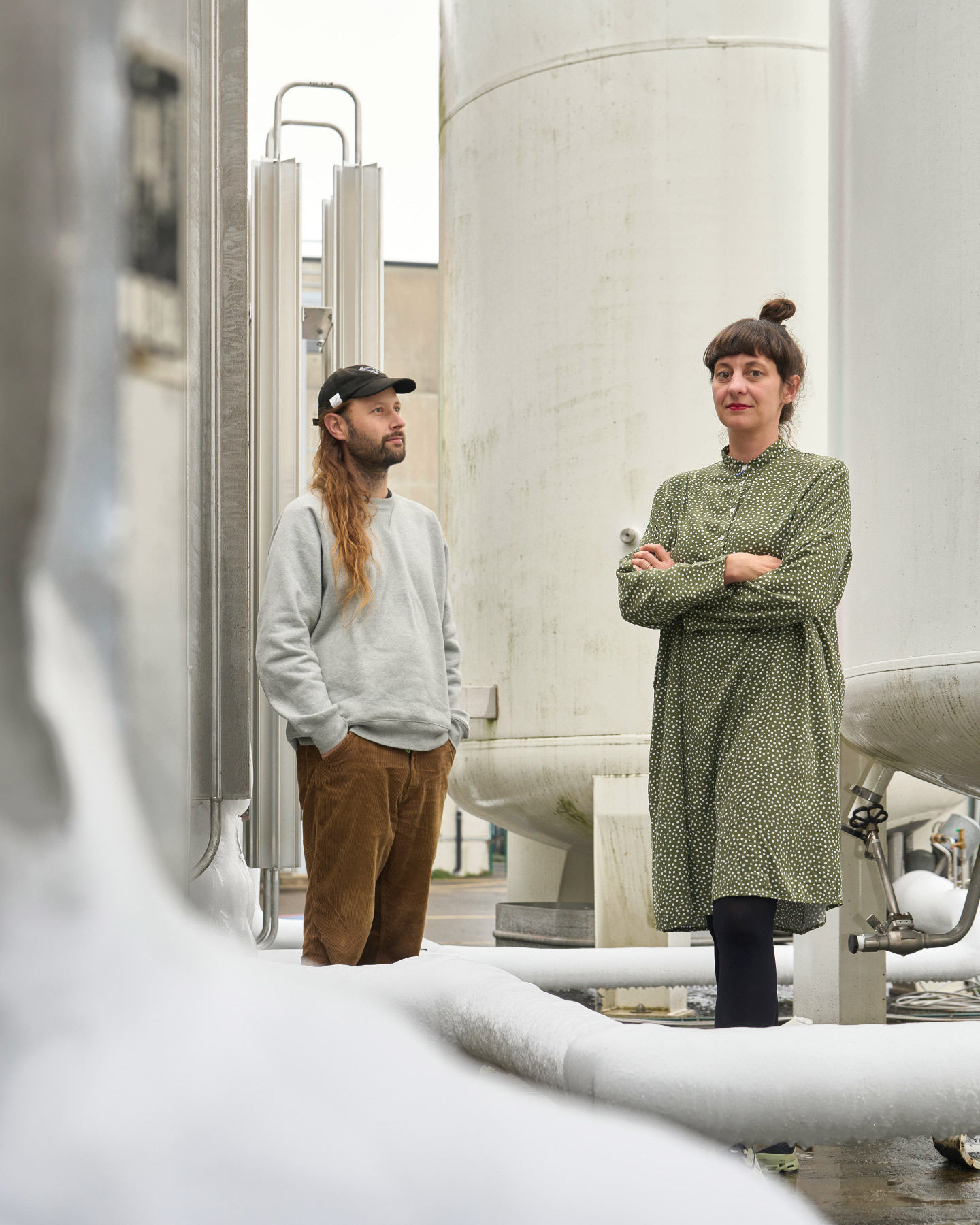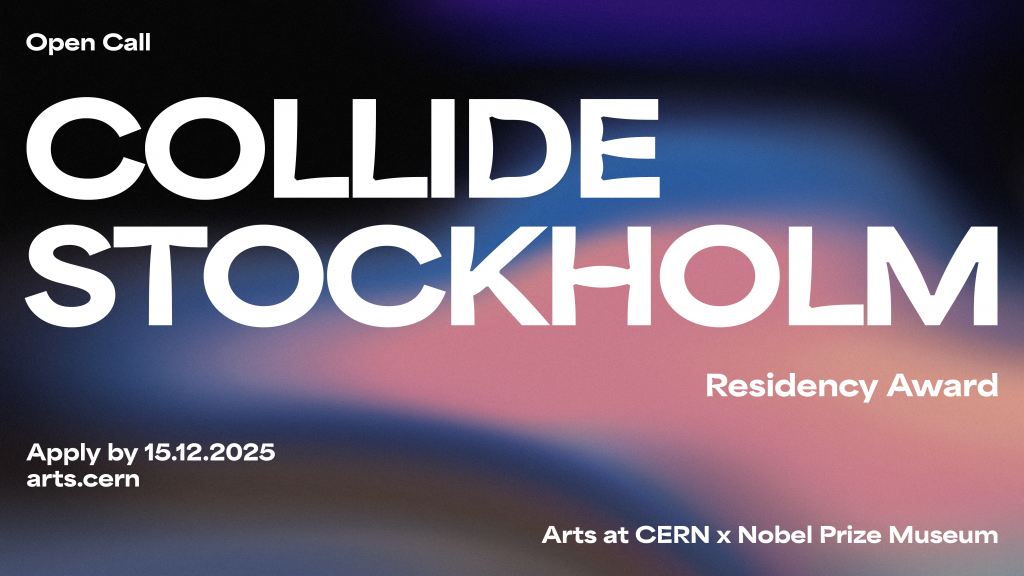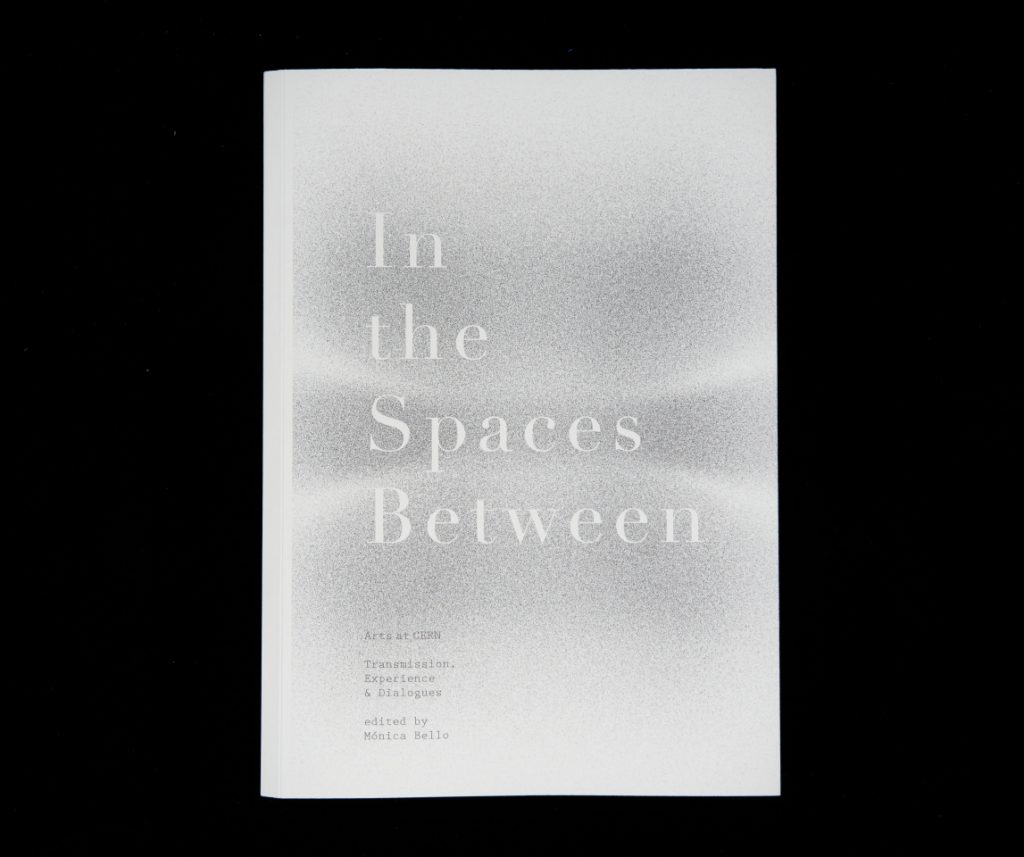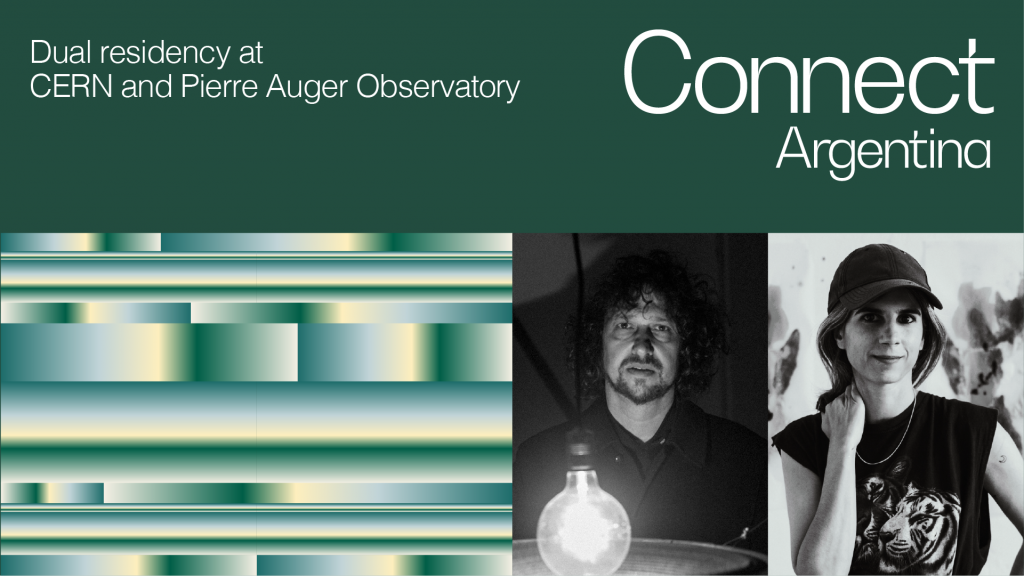- Tags
- Artistic residencies, Connect, Connect South Africa
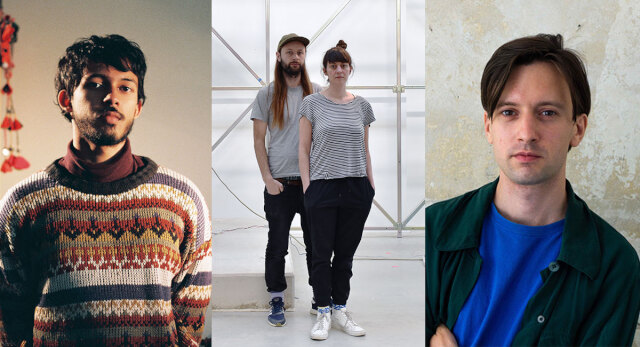
Arts at CERN and the Swiss Arts Council Pro Helvetia are pleased to announce the selected artists for the first edition of Connect
Two fully-funded artistic residencies are to be awarded in 2021: Connect, a three-month residency at CERN aimed at Swiss artists, awarded to the artistic collective AATB; and Connect South Africa, a dual residency for a Swiss artist and an artist from South, West and East Africa, awarded to the artists Ian Purnell and Kamil Hassim.
Connect is a residency programme launched by Arts at CERN in collaboration with the Swiss Arts Council Pro Helvetia. Over the next four years, Connect will open a series of artistic residency opportunities that will take place at CERN (Geneva, Switzerland) and at partner scientific organisations in various countries, such as Chile, South Africa, and India.
Artistic collective AATB are the winners of Connect, a 3-month residency at CERN
AATB, the collaborative practice of Swiss artists Andrea Anner and Thibault Brevet, is dedicated to the idea of Non-Industrial Robotics, experimenting with industrial robotic systems such as robotic arms and industrial automation processes. With their project, they aim to explore representations of space and time using industrial robotic arms, bringing both small atomic events and massive cosmological events into a human-scale format. With CERN researchers, they hope to define a precise framework and ideas later to develop an art installation. AATB will spend two months at CERN, followed by a remote residency of one month in dialogue with scientists at CERN and the curatorial support of the Arts at CERN team.

Kamil Hassim and Ian Purnell, winners of Connect South Africa, a dual residency between CERN, SARAO and SAAO
The selected artists of Connect South Africa, Ian Purnell and Kamil Hassim, will spend three weeks together at CERN, followed by five weeks in the group of astronomy observatories connected to the South African Astronomical Observatory (SAAO) and the South African Radio Astronomy Observatory (SARAO).
Ian Purnell works at the intersection of visual arts, documentary filmmaking and performing arts. In his project proposal titled The Black Hole Image, he aims to explore the visual concept of black holes and initiate a process of reflection on an alternative imaging of the universe.

In his project proposal If Spacetime were a Canvas, South African Kamil Hassim intends to explore the standard model of particle physics, as well as Indigenous and diasporic South African spiritual and cosmological sensibilities and their relevance to the modern physics and astronomy research conducted by SARAO and SAAO. He aims to create resonant instruments that will serve to draw a connection between ancient wisdom and modern scientific knowledge.

Both residencies are expected to start between February and April 2022, depending on organisational and travel limitations due to the global sanitary emergency.
About the jury
The selection of the winning artists of Connect and Connect South Africa was based on the evaluation of the application and the artists’ submitted proposal and reviewed by a jury of cultural and scientific experts. The juries were comprised of Mónica Bello, Head of Arts at CERN, Geneva; Giulia Bini, Curator and Producer at the EPFL Pavilions, Lausanne; Daniel Cunnama, Science Engagement Astronomer at the South African Astronomical Observatory (SAAO); Joseph Gaylard, Head of Pro Helvetia Johannesburg; Caroline Hirt, co-founder and Director of the Museum of Digital Art (MuDA), Zürich; Salome Hohl, Director of Cabaret Voltaire, Zürich; Claire Lee, Particle Physicist at the U.S. Department of Energy’s Fermilab, CERN; Simphiwe Madlanga, Science Engagement Coordinator for the South African Radio Astronomy Observatory (SARAO); George Mahashe, Curator, Artist and Lecturer at Michaelis School of Fine Art, Cape Town; Seraina Rohrer, Head of Pro Helvetia Innovation & Society Sector, Zürich; and Tamara Vázquez Schröder, Experimental Particle Physicist working with the ATLAS Experiment at CERN.
